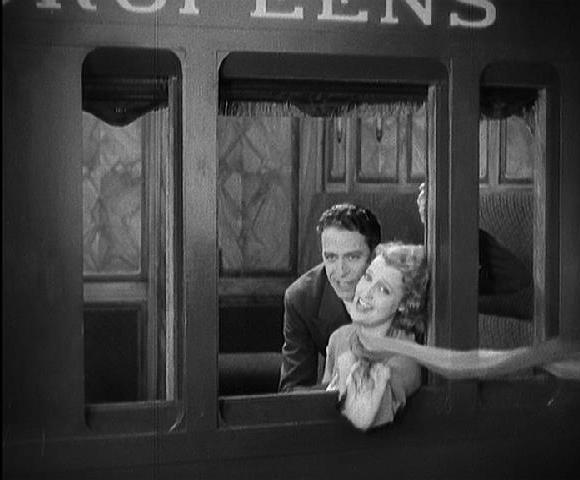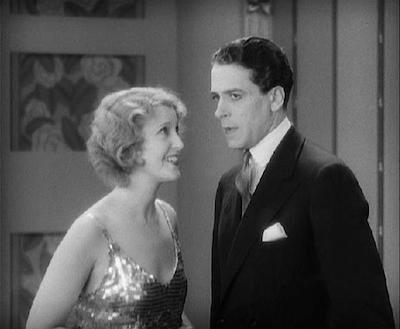Ernst Lubitsch’s second sound film, Monte Carlo (1930), sometimes gets lost in the shuffle largely owing to its star Jack Buchanan, who, despite his success on the stage, never really caught on with American audiences as a leading man in movies. And while there’s no denying that he’s no Maurice Chevaller — Lubitsch’s major star (especially in musicals) of the era — he’s not bad, and the film itself is a gem. It moves better and is much more self-assured than the more famous Chevalier vehicle The Love Parade (1929), and it thankfully loses The Love Parade’s awful secondary romance between the very unfunny subordinate stars. Plus, it has the good sense to retain Chevalier’s co-star Jeanette MacDonald. It’s also a funnier film and benefits from being nearly 20 minutes shorter than its predecessor.
The songs are mostly pretty good — with “Always in All Ways” and, especially, “Beyond the Blue Horizon” being a lot more than pretty good. It’s also one of those rarest of musicals in that it deliberately pokes fun at the conventions of the genre. Cinematically thrilling as the presentation of “Beyond the Blue Horizon” is, it also spoofs itself with its singing peasants and invites the viewer to laugh at its absurdity. Late in the film, the opera that mirrors the film’s plot is referred to as “a silly story, only possible with music,” and that is a pretty fair description of the film itself.
The premise finds Countess Helene Mara (MacDonald) running away from her wedding to the silly ass Prince Otto von Liebenheim (Claud Allister) — whose redeeming qualities are “he’s rich, he’s wealthy and he has nothing but money.” Hopping the first train, wearing nothing but a slip and a fur coat, she decides to go to Monte Carlo to gamble her debts away. Or so she thinks. Despite rubbing a hunchback for luck (for which he turns out to charge 50 francs) she presses things too far, loses everything and blames it on the presence of Count Rudolph Falliere (Buchanan). Since Rudolph can make no headway with her, he presents himself as her hairdresser and … well, you can probably guess the rest. But whether you can guess its wit, charm, and sparkling, champagne-like quality — well, that’s another matter.
The Asheville Film Society will screen Monte Carlo Tuesday, April 15, at 8 p.m. in Theater Six at The Carolina Asheville and will be hosted by Xpress movie critics Ken Hanke and Justin Souther.






“Trimming the Women” seemed to go over best with our audience.
It’s amusing, though the big hits were “Always in All Ways” and, especially, “Beyond the Blue Horizon.” I kinda doubt that no one probably made a hit record out of “Trimming the Women.” (The laserdisc release had exit music that would guarantee you would be stuck with “Always in All Ways” for days.) I suspect I know the answer, but did anyone get the hunchback gag?
I’m not certain, but I don’t think so. I didn’t until I read your review.
Is the concept of touching a hunchback for luck foreign to you?